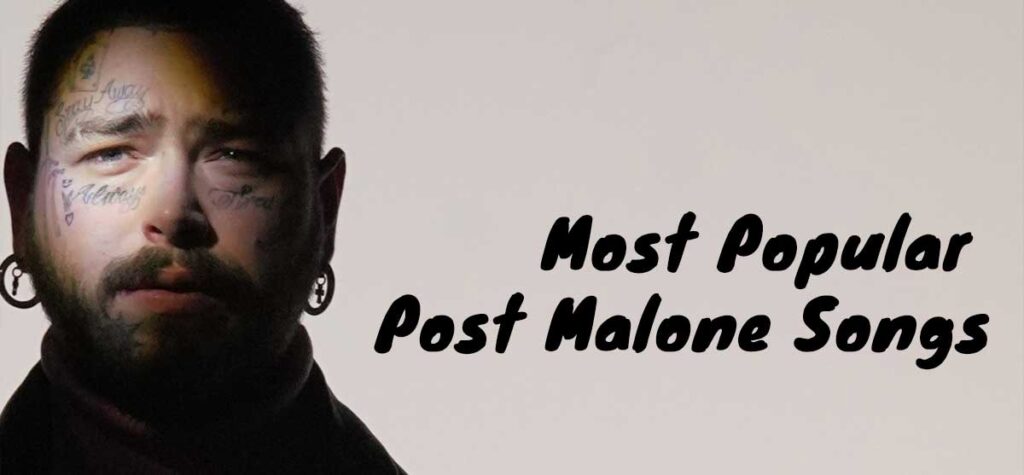25 Best Songs About Irony
Table of Contents
25. “Paper Planes” by M.I.A.
24. “Winds of Change” by Scorpions
23. “Lost Cause” by Beck
22. “Society” by Eddie Vedder
21. “Little Boxes” by Malvina Reynolds
20. “Fake Plastic Trees” by Radiohead
19. “Beds Are Burning” by Midnight Oil
18. “Lucky Man” by Emerson, Lake & Palmer
17. “Unwell” by Matchbox Twenty
16. “Miss Misery” by Elliott Smith
15. “Richard Cory” by Simon & Garfunkel
14. “The Weight” by The Band
13. “You Can’t Always Get What You Want” by The Rolling Stones
12. “The River” by Bruce Springsteen
11. “A Change Is Gonna Come” by Sam Cooke
10. “Funny How Time Slips Away” by Willie Nelson
9. “Positively 4th Street” by Bob Dylan
8. “Smile” by Nat King Cole
7. “The Great Pretender” by The Platters
6. “Hit That Jive Jack” by Diana Krall / Nat King Cole
5. “The Way Life Goes” by Lil Uzi Vert ft. Oh Wonder
4. “That’s Life” by Frank Sinatra
3. “Life is Just a Bowl of Cherries” by Rudy Vallee
2. “Isn’t it a Pity” by George Harrison
1. “Ironic” by Alanis Morissette
Closing Notes: The Timeless Appeal of Songs About Irony
Tuned to Irony: A Deep Dive into Songs About Irony
Life has a funny way of throwing curveballs – the harder you try to play it safe, the more likely something hilariously unexpected will derail your plans.
Just when you think you’ve got it all figured out, the universe delivers a dose of sweet, sweet irony.
Whether you’re the king of bad luck or just enjoy a good “you can’t make this stuff up” moment, this playlist celebrates those songs that capture those ironic twists of fate.
From laugh-out-loud unlucky situations to bittersweet tales of unintended consequences, these ironically brilliant tunes will have you nodding along in recognition.
Get ready for a playlist that’s as relatable as it is entertaining!
25. “Paper Planes” by M.I.A.
Ironic Juxtaposition of Sound and Subject
M.I.A.‘s “Paper Planes” masterfully uses irony to deliver a powerful social commentary. The song’s upbeat, pop-like sound and catchy melody disguise a darker lyrical exploration of the violence, poverty, and social struggles associated with hustling and immigration. This juxtaposition of sound and subject matter makes “Paper Planes” a classic example of musical irony. Here’s why:
- Cheerful Pop Sensibility: The song itself has a bright, upbeat sound with catchy hooks, creating a sense of commercial pop success.
- Darker Lyrics: The lyrics delve into the dangerous realities of a street hustler’s life, describing gunshots, drug dealing, and the struggles of immigration.
- Clash Sample: The use of a sample from The Clash’s “Straight to Hell”, a politically-charged song about social hardship, adds a further layer of irony to the track’s seemingly carefree surface.
24. “Winds of Change” by Scorpions
Irony of Timing and Transformation
The Scorpions‘ power ballad “Winds of Change” became an anthem for the fall of the Berlin Wall and the end of the Cold War. However, there’s an inherent irony in this; lead singer Klaus Meine wrote the song inspired by a visit to the Soviet Union in 1988, a year before the historic events unfolded. The song’s themes of hope and unity were incredibly prescient, but its release made it seem like a retrospective commentary rather than a catalyst for the massive political shifts it preceded. Here’s how the irony plays out:
- Premonition of Change: The lyrics envision a world of unity and the breaking down of barriers, sentiments perfectly aligned with the changes that were soon to sweep through Eastern Europe.
- Accidental Anthem: The song’s release coincided with the fall of the Berlin Wall, making it seem like a celebratory reaction to the events rather than a premonition of them.
- Transformation vs. Prophecy: The song embodies the transformative spirit of the era, but its unintentional timing makes it ironic that it captured the feeling of change before that change was fully realized.
23. “Lost Cause” by Beck
The Irony of Self-Sabotage
Beck‘s melancholic ballad “Lost Cause” explores the depths of a self-destructive relationship. The irony here lies in the speaker’s awareness of the situation but their seeming inability to break free. Recognizing the toxicity of the relationship amplifies the sadness and creates an almost hopeless sense of irony. Here’s how it breaks down:
- Honest Self-Assessment: The speaker clearly sees the damage caused by the relationship, using phrases like “sorry eyes cut through the bone” and “waving your guns at somebody new”.
- Powerlessness: Despite recognizing the harm, the speaker repeatedly calls themselves a “lost cause”, suggesting a feeling of resignation and powerlessness.
- Lingering Hope: While the song is predominantly bleak, there’s a hint of irony in the final lines suggesting a place where healing may happen. This undercurrent fights against the despair, creating a sense of tension.
22. “Society” by Eddie Vedder
Uncertain Message in a Hopeful Melody
Eddie Vedder‘s “Society,” a collaboration with Glen Hansard, presents a complex and ironic message wrapped in a seemingly optimistic melody. The upbeat music stands in contrast to the lyrics that grapple with societal issues and a sense of unease about the future. Here’s how the irony unfolds:
- Uplifting Tempo: The song features a bright, driving tempo and soaring vocals, creating an initial feeling of hope and encouragement.
- Critical Lyrics: However, the lyrics delve into anxieties about societal problems, questioning conformity, materialism, and the potential for social collapse. Lines like “Is this the best we can do?” and “Bought and sold, never told” express a sense of dissatisfaction with the status quo.
- Ambiguous Ending: The song concludes without a clear resolution, leaving the listener with a sense of unease despite the uplifting music. This ambiguity adds another layer of irony, as it’s unclear whether “Society” is a call to action or a lament.
21. “Little Boxes” by Malvina Reynolds
The Irony of Conformity
Malvina Reynold‘s iconic folk song “Little Boxes” is a deceptively simple satire about the conformity and homogeneity of suburban life in post-war America. The irony lies in the song’s gentle melody and childlike observations, which belie its sharp critique of societal ideals. Here’s why:
- Sweet and Simple: The song’s repetitive tune and sing-along style suggest something innocent, perhaps a children’s rhyme.
- Biting Satire: The lyrics paint a picture of ticky-tacky homes and lives lived in lock-step, where individuality is suppressed and everyone “looks just the same”.
- Dark Undertones: The final stanza takes a cynical turn, revealing the entire life cycle – from college to business to raising a family – is trapped in an endless loop of conformity.
20. “Fake Plastic Trees” by Radiohead
The Irony of Superficiality
Radiohead‘s melancholic masterpiece “Fake Plastic Trees” explores the emptiness of a world obsessed with appearances and material desires. The song’s irony lies in the disconnect between the yearning for something genuine and the inescapable artificiality of the environment. Here’s how it manifests:
- Lament for the Real: The lyrics grapple with the sense of hollowness amidst a plastic world, expressing a desire for authentic connection and meaning.
- Imagery of Fakeness: The titular “fake plastic trees,” along with references to “gravity” always getting one down, create a suffocating image of superficiality.
- Soaring Crescendo: The song’s grand, orchestral crescendo builds as if reaching for something truly emotional, only to collapse back into somber reflection— highlighting the unattainability of what’s truly desired.
19. “Beds Are Burning” by Midnight Oil
The Irony of Inaction
Midnight Oil‘s fiery protest anthem “Beds Are Burning” highlights the urgency of addressing the displacement and mistreatment of Indigenous Australians. The irony of the song lies in its blend of catchy rhythms and a damning message of injustice, highlighting the disconnect between the upbeat energy and the uncomfortable reality it confronts. Here’s how it plays out:
- Danceable Protest: The song’s driving beat and anthemic chorus give it an almost danceable quality, an ironic juxtaposition with the serious subject matter.
- Confrontational Message: The lyrics directly address historical and ongoing wrongs against Indigenous Australians, demanding restitution with lines like “it belongs to them, let’s give it back.”
- The Call to Action: The song’s upbeat energy transforms into a sense of urgency. This irony is intended to jar listeners out of complacency and inspire them to actively support the cause of Indigenous rights.
18. “Lucky Man” by Emerson, Lake & Palmer
The Irony of Fortune and Fate
Emerson, Lake & Palmer‘s “Lucky Man” presents a darkly ironic tale of a man seemingly blessed with fortune who meets a tragic end. The song’s twist of fate challenges the notion of “luck” and forces a deeper reflection on the fragility of life. Here’s how the irony unfolds:
- The Fortunate Man: The lyrics paint a picture of a man with wealth, privilege, and seemingly effortless success. Lines like “Ooh, what a lucky man he was” reinforce this initial impression.
- The Sudden Twist: The final verse brutally shifts the narrative as the lucky man goes off to fight in a war and is killed, shattering the illusion of his charmed life.
- The Meaning of Luck: The song questions whether luck is a real force or merely a fleeting circumstance. It reminds us that even those seemingly favored by fortune are not immune to the unpredictable nature of life.
17. “Unwell” by Matchbox Twenty
Honest Vulnerability Masquerading as Craziness
“Unwell” delves into the raw emotions of mental and social instability. The song’s speaker struggles with internal anxieties and fears of being perceived as “crazy”. The irony here lies in the stark contrast between the speaker’s desperate attempt to appear normal and the unsettling honesty of their internal monologue. Here’s how it plays out:
- The Facade of Normalcy: The lyrics portray a person trying to maintain an outward appearance of stability using lines like “I’m not crazy, I’m just a little unwell.”
- Internal Turmoil: Despite this facade, the song reveals a mind spiraling with paranoia and an inability to connect with others.
- Dark Self-Awareness: The irony deepens with the awareness the speaker has of their own deteriorating state. Yet, they still cling to the desperate desire to be seen as “okay.”
16. “Miss Misery” by Elliott Smith
The Irony of Unexpected Fame
Elliott Smith‘s haunting “Miss Misery” was propelled to unlikely fame through its inclusion in the Good Will Hunting soundtrack, earning him an Oscar nomination. The song’s irony lies in the disconnect between its melancholic lyrical content and the glittering spotlight of Hollywood recognition. Here’s where the tension lies:
- Bleak and Personal: The lyrics dwell on loneliness, self-doubt, and feeling like an outsider. Lines like “Do you miss me, Miss Misery, like you say you do?” express a raw vulnerability.
- Reluctant Success: Smith himself was famously uncomfortable with mainstream fame, amplifying the irony of a song about alienation and despair finding such a public platform.
- The Underdog Triumph: The Oscar nomination solidified the song’s success, highlighting the ironic contrast between the singer-songwriter’s internal struggle and widespread recognition for his deeply personal work.
15. “Richard Cory” by Simon & Garfunkel
The Irony of Appearances
Simon & Garfunkel‘s “Richard Cory” tells the tragic story of a wealthy, envied man who inexplicably takes his own life. The song’s irony lies in the stark contrast between outward appearances of success and inner turmoil. Here’s how it unfolds:
- Idealized Persona: The initial verses paint Richard Cory as a figure of admiration—handsome, wealthy, seemingly possessing everything one could desire. The townspeople wish they could be in his shoes.
- The Shocking Twist: The final verse shatters the illusion, revealing Richard Cory’s suicide and exposing the hollowness behind the facade of perfection.
- The Deception of Wealth and Status: The song highlights how appearances can be deceiving. It underscores that material wealth and social status cannot shield someone from profound sadness and inner struggle.
14. “The Weight” by The Band
The Ironic Burden of Responsibility
The Band‘s iconic song “The Weight” is laden with symbolism and open to various interpretations. One strong vein of irony lies in the song’s central request – to “take a load off.” Here’s how this plays out:
- The Traveler’s Plea: The song’s narrator arrives in Nazareth, seeking respite and a simple favor: someone to help them carry their burden.
- Unexpected Burdens: The characters encountered— from Crazy Chester to Miss Fanny —are too preoccupied with their own troubles or vices to offer help, highlighting the unexpected weight of human struggles.
- The Never-ending Load: The song ends with no resolution. The traveler’s plea remains unmet, suggesting the weight of responsibility or hardship may be a constant companion on life’s journey.
13. “You Can’t Always Get What You Want” by The Rolling Stones
The Irony of Desire and Acceptance
The Rolling Stones‘ classic hit delivers a deceptively simple message about the disappointments of life. The song’s irony lies in the contrast between its anthemic chorus and the bittersweet truth it conveys. Here’s how it unfolds:
- The Battle Cry of Desire: The chorus, with its repetition of “you can’t always get what you want,” seems like a defiant call to keep striving and pushing onward.
- The Reality Check: The verses, however, explore a range of scenarios where desires go unfulfilled—love, ambition, and even basic needs can remain out of reach.
- The Twist of Wisdom: The song’s brilliance lies in the final lines suggesting that perhaps getting what you need is more important. This shift in perspective highlights the irony of focusing solely on wants and overlooking the necessary.
12. “The River” by Bruce Springsteen
The Irony of Hope and Hardship
Bruce Springsteen‘s “The River” depicts the harsh realities of working-class life, particularly the disillusionment that can follow youthful dreams. The irony lies in the way the river, a symbol with the potential for hope and renewal, ultimately reflects a kind of entrapment. Here’s why:
- Youthful Optimism: The song’s opening describes a young couple whose love blossoms by the river—a symbol of possibility and escape.
- The Harsh Reality: As the narrative progresses, life’s hardships – unexpected pregnancy, unemployment, and fading dreams – erode that initial hopefulness.
- The River’s Shift: The river, once a place of freedom, now represents the inescapable limitations of their circumstances. It mirrors their own stagnation, becoming a symbol of lost potential.
11. “A Change Is Gonna Come” by Sam Cooke
The Irony of Hope Amidst Despair
Sam Cooke‘s iconic Civil Rights anthem “A Change Is Gonna Come” embodies a poignant irony that amplifies its power and significance. Despite the song’s message of unwavering hope for a better future, it carries a deep undercurrent of pain and the tragic circumstances surrounding its release. Here’s how the irony unfolds:
- Personal Experiences: The lyrics are inspired by Cooke’s own harrowing experiences with racism and segregation, infusing the song with an authentic sense of struggle.
- Resilient Belief: Even amid such adversity, Cooke’s lyrics radiate hope and a relentless belief that change is inevitable. Lines like “It’s been a long time coming, but I know a change is gonna come” convey this determination.
- Tragic Timing: Cooke was tragically murdered in December of 1964, never living to see the full impact of the Civil Rights victories he so passionately sang about. This underscores the heartbreaking irony within the song’s enduring optimism.
10. “Funny How Time Slips Away” by Willie Nelson
The Irony of Time’s Elusive Nature
Willie Nelson‘s classic “Funny How Time Slips Away” offers a poignant reflection on the passage of time. The song’s irony lies in the disconnect between our perception of time and its unrelenting march forward. Here’s how it plays out:
- Casual Observation vs. Profound Truth: The song’s gentle tone suggests casual observations about time. However, phrases like “funny how time slips away” mask the profound realization of how fleeting life truly is.
- Missed Connections: The lyrics detail encounters with old acquaintances, hinting at lost opportunities and unfulfilled dreams. This underscores the way time can subtly erode relationships and possibilities.
- The Paradox of Awareness: Nelson acknowledges the passing of time but seems almost resigned to its inevitability, creating an irony between the desire to hold onto moments and their inevitable fading.
9. “Positively 4th Street” by Bob Dylan
The Irony of Scathing Sincerity
Bob Dylan‘s “Positively 4th Street” oozes with a scathing bitterness disguised as polite well-wishing. The song’s irony comes from this juxtaposition of venomous lyrics delivered under a veil of faux civility. Here’s how it unfolds:
- The Thin Veneer: Dylan addresses an unnamed “you” with seemingly polite phrases like “I wish that for just one time you could stand inside my shoes.”
- Scathing Attacks: The lyrics are filled with biting insults and thinly veiled accusations of hypocrisy, jealousy, and social climbing.
- The Twist: Dylan’s repeated insistence that he doesn’t wish any ill will on the target of the song becomes increasingly ironic the more venomous the lyrics become.
8. “Smile” by Nat King Cole
The Irony of Encouraging Optimism While Facing Pain
Nat King Cole‘s timeless ballad “Smile” offers a gentle message of resilience in the face of heartache. However, the song carries a poignant irony in its simple advice to smile through pain. Here’s where the tension lies:
- Sweet Sentiment, Heavy Context: The lyrics convey a hopeful message, telling the listener to “smile though your heart is aching.” The song’s melody is similarly light and comforting.
- The Reality of Sadness: This encouragement to suppress sadness clashes with the reality of human experience. It suggests burying pain rather than fully processing it.
- Historical Context: Cole, as an African-American performer, faced the additional weight of prejudice and societal restrictions. This underscores the irony of promoting a simplistic smile as a cure-all for profound struggle.
7. “The Great Pretender” by The Platters
The Irony of Wearing a Mask
The Platters’ iconic “The Great Pretender” explores the heartbreak of concealing one’s true emotions behind a facade. The irony stems from the singer’s self-awareness of their performance and the inner conflict it creates. Here’s how it breaks down:
- Honest Confession: The lyrics are filled with raw admissions of loneliness and heartbreak, confessing, “too real is this feeling of make-believe”.
- The Performed Façade: Despite this vulnerability, the singer maintains an outward facade of happiness, being the life of the party while secretly crumbling inside.
- The Toll of Pretending: The song’s irony is found in the contrast between the loneliness confessed and the performance demanded. This tension highlights the emotional cost of wearing a mask and the singer’s recognition that they are the only one fooled in the end.
6. “Hit That Jive Jack” by Diana Krall / Nat King Cole
The Ironic Celebration of Outdated Slang
“Hit That Jive Jack” is a swing-era classic full of jazz slang and dated expressions. The irony lies in its enthusiastic use of language that, by the time of its original recording, was already starting to feel like a relic of a bygone era. Here’s how it plays out:
- A Time Capsule: The lyrics are packed with phrases like “Hit that jive, Jack”, “Get with the wise”, and “Dig the scene”, which would have been considered hip decades prior to the song’s release.
- Anachronistic Fun: Instead of feeling jarring, the outdated language adds to the song’s charm and nostalgic appeal, creating a sense of playful irony.
- Knowing Celebration: Artists covering the song, like Diana Krall and Nat King Cole, embrace the linguistic time warp, knowingly celebrating the energy and style of jazz’s past.
5. “The Way Life Goes” by Lil Uzi Vert ft. Oh Wonder
The Irony of Success and Heartbreak
Lil Uzi Vert‘s hit song “The Way Life Goes”, featuring Oh Wonder, explores the complicated mix of emotions experienced after a breakup. The irony lies in the contrast between the rapper’s outward bravado about material wealth and the lingering pain of a lost relationship. Here’s how it plays out:
- Materialistic Facade: Lil Uzi Vert flaunts his wealth and designer goods with lines like “My Louboutins new, so my bottoms, they is redder.” This suggests an attempt to mask his emotional hurt with material possessions.
- Emotional Vulnerability: The chorus, sampled from Oh Wonder’s “Landslide”, reveals the underlying heartbreak and a sense of powerlessness over life’s unpredictable nature.
- Conflicting Emotions: The juxtaposition of boasts about success and the melancholic yearning for his lost love exposes the irony of trying to fill a void with material gain.
4. “That’s Life” by Frank Sinatra
The Irony of Defiance Amidst Setbacks
Frank Sinatra‘s iconic “That’s Life” embodies a defiant spirit in the face of life’s ups and downs. The song’s irony lies in its uplifting message delivered amidst the acknowledgment of numerous hardships and defeats. Here’s how the irony unfolds:
- No Sugarcoating: The lyrics don’t shy away from life’s harsh realities—they mention being “kicked in the head”, “crying a tear”, and the inevitability of setbacks.
- Undeterred Spirit: Despite this, Sinatra’s delivery expresses a defiant resolve, telling the listener to “pick yourself up, dust yourself off, and start all over again.”
- Unexpected Optimism: The song’s brassy instrumentation and Sinatra’s swaggering vocals amplify the ironic contrast between the acknowledged struggles and the unwavering determination to fight through them.
3. “Life is Just a Bowl of Cherries” by Rudy Vallee
The Irony of Superficial Optimism
Rudy Vallee‘s chirpy rendition of “Life is Just a Bowl of Cherries” is a Depression-era classic that promotes a lighthearted outlook. The irony lies in the disconnect between this message of carefree simplicity and the harsh realities of the time period. Here’s how it breaks down:
- The Great Depression Context: Released in 1931, the song coincided with widespread economic hardship, making its message of nonchalance seem jarringly out of touch with the struggles of everyday people.
- Glossing Over Hardship: The lyrics encourage listeners to ignore life’s complexities, suggesting problems disappear if we simply don’t take them too seriously.
- Unintentional Irony: The song’s upbeat nature might have been intended as lighthearted escapism. However, the historical context creates an ironic disconnect between the carefree sentiment and the lived experiences of the time.
2. “Isn’t it a Pity” by George Harrison
The Irony of Unexpressed Potential
George Harrison‘s “Isn’t it a Pity” is a lament for the missed opportunities and misplaced priorities that plague both individuals and society as a whole. The irony lies in the disconnect between recognizing human potential and witnessing its frequent squandering. Here’s how it plays out:
- Missed Opportunities: The lyrics paint a picture of broken relationships, unfulfilled dreams, and the world’s focus on conflict instead of cooperation.
- The Questioning Tone: The repeated refrain “Isn’t it a pity” highlights a sense of frustration and disappointment at this pervasive lack of progress.
- The Missed Point: There’s irony in the fact that the song itself points out the problem of humans missing the beauty and potential all around them, while still falling victim to the same destructive patterns.
1. “Ironic” by Alanis Morissette
The Meta-Irony of Misunderstanding Irony
Alanis Morissette‘s hit song “Ironic” has become synonymous with debate about the definition of irony. Ironically, the song itself might lack examples of true situational irony, making it an ironic icon for misunderstood irony. Here’s why:
- Situational Irony vs. Unfortunate Events: Most situations described in the song are examples of bad luck or misfortune, not true irony as it’s classically defined (outcomes being the opposite of what’s expected).
- The Cultural Impact: The song sparked widespread discussions about the meaning of irony, making the misunderstanding of the word within the song itself a meta-level of irony.
- Alanis’ Acknowledgement: Morissette has even acknowledged the debated irony of the song, further solidifying its status as a unique cultural phenomenon.

Closing Notes: The Timeless Appeal of Songs About Irony
So, next time life throws you a curveball (or maybe a whole crate of them), remember that you’re not alone in the ironic absurdity of it all.
Put on these tunes and find some ironic solidarity with the songwriters who’ve expertly captured those moments in a catchy melody.
Life’s twists and turns can be frustrating, but sometimes you just have to step back, embrace the unexpected, and laugh.
After all, if you can’t find the humor amidst the ironic chaos, what’s the point?
Don’t take it all too seriously – life’s too full of surprises (and great songs about them) to do that!

Written by Sebastien Helary
Sebastien Helary is the founder and principal writer for Nextbop.com, a premier destination for contemporary jazz enthusiasts. His insightful contributions have also graced the pages of Time Out Montreal and Cult Montreal. Outside the realm of music journalism, Sebastien's personal musings and artistry are showcased at Helaryous.com.
You Might Also Like!

25 Most Popular Post Malone Songs
Dive into the world of Post Malone with our spotlight on the 25 Most Popular Post Malone Songs on Spotify! 🌟
From the beerbongs & bentleys highs of "Rockstar" to the Stoney vibes of "White Iverson," get ready for a musical journey with Posty's top hits. 🎤🚀
Click to explore the anthems that define a generation. 🎧👇

20 Most Popular Imagine Dragons Songs
Embark on an electrifying journey with Imagine Dragons' Most Popular Songs. This is not just a collection of tracks; it's a voyage through the pulsating heart of a band that has redefined alternative rock.
Experience the thunderous energy of "Believer" and the rhythmic pulse of "Thunder," as Imagine Dragons blend raw emotion with captivating melodies. Each song is not just a hit; it's a window into a world of passion, creativity, and the power of music to move the soul.

25 Best Benny Blanco Produced Songs
Benny Blanco's Midas touch has transformed countless tracks into chart-topping hits, infusing them with his signature blend of catchy melodies and infectious beats.
Get ready to embark on a sonic journey through Benny Blanco's impressive discography, where every song is a testament to his unparalleled production prowess.
From heart-wrenching ballads to upbeat anthems, this collection showcases the breadth of Benny's talent and his ability to create music that resonates with listeners of all genres.
Click to uncover the stories behind 25 of Benny Blanco's best-produced songs and experience the magic that has made him one of the most sought-after producers in the music industry.


Have a favorite song we missed? Let us know in the comments!